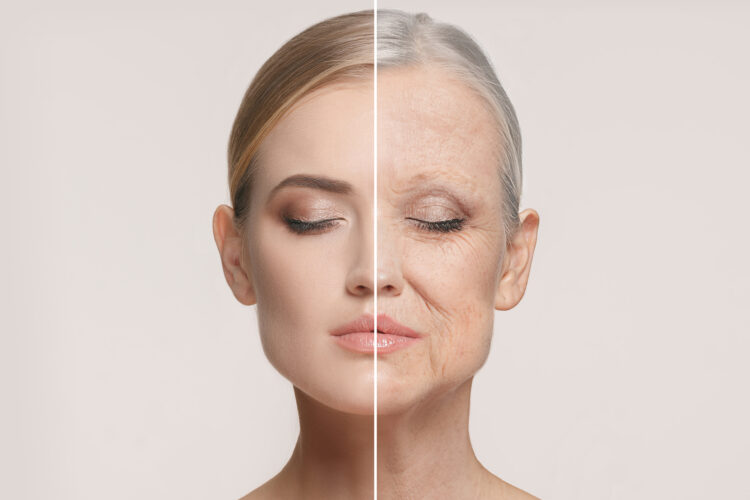
Here are 15 weird facts about women that might surprise you. From unique biological quirks to historical achievements, these facts shed light on just how fascinating women are. Let us jump right in and explore what makes women truly unique!
Women’s Brains Rewire During Menstruation

So, during menstruation, some women might feel a bit more introspective or moody, and there is a scientific reason behind it. Research shows that the brain structure actually changes slightly during the menstrual cycle. Parts of the brain associated with emotions are more active, which can lead to greater empathy and, sometimes, a bit more irritability.
Women Have a Better Sense of Smell Than Men

Ever wonder why women often seem to be the first to sniff out mildew in a towel or a gas leak? Women generally have a stronger sense of smell than men, and it gets even sharper around ovulation. This heightened sense of smell is thought to be evolutionary, helping women subconsciously pick up on pheromones to find a suitable mate.
The First Programmer Was a Woman

Ada Lovelace, born in 1815, is considered the world’s first computer programmer, long before the actual computers were made. She wrote the first algorithm intended to be carried out by a machine. That is right, in a field that is today thought to be dominated by men, it was a woman who paved the path. The credit for laying the foundation for modern software goes to Ada Lovelace.
Women’s Hearts Beat Faster Than Men’s

A woman’s heart is smaller than a man’s, which means it has to pump more frequently to move the same amount of blood. On average, a woman’s heart beats about eight more times a minute than a man’s. This does not mean women are always more flustered, just that their hearts are literally working harder all the time.
Women Are More Likely to Be Supertasters

About 35% of women are ‘supertasters’, compared to only 15% of men. Supertasters have a specific gene that gives them a greater sensitivity to bitter flavors, which can make certain vegetables like broccoli taste super bitter. Being a supertaster means all flavors are intensified, which can affect food preferences and diet significantly.
Women Can Distinguish More Colors

Ever been in a debate about whether something is teal or turquoise and she is adamant about her choice? There is a reason for that. Studies show that women can see more nuances in colors than men. This is because the gene that allows for seeing red and green is located on the X chromosome, and since women have two X chromosomes, they have a backup in case one is less effective.
Women Are More Likely to Have Nightmares

Research indicates that women are more likely to remember their dreams and those dreams are more likely to be nightmares. Theories suggest that this might be linked to emotional sensitivity, which can cause the brain to experience more intense dreams that are remembered upon waking. So next time she talks about a bad dream, understand it might have felt extra vivid!
Women’s Skin Ages Faster Than Men’s

Women’s skin is actually thinner and more prone to wrinkling than men’s. Plus, after menopause, the decrease in estrogen can accelerate skin aging. However, this also means the skincare industry heavily targets women with products that can help mitigate these effects, which is not necessarily a bad thing if you are into self-care and keeping your skin feeling healthy and rejuvenated.
Women Have a Higher Pain Threshold

Contrary to some tough-guy stereotypes, studies generally suggest that women have a higher pain threshold, thanks to their ability to give birth. They are also better at coping with pain, which could be due to a combination of biological and psychological factors. This does not mean they feel less pain; rather, they are better equipped to handle it. Next time she brushes off a stubbed toe, you know why!
Women Live Longer Than Men

On average, women live about 5 to 10 years longer than men. Scientists think this might be due to a combination of factors, including genetics, lifestyle choices, and perhaps their more regular interaction with healthcare systems. So, if you are planning a long game, best keep up with her, she is likely to be around for the long haul!
Women Have Better Peripheral Vision

Women often excel in peripheral vision, sometimes noticing things that are not directly in front of them better than men. This does not mean women are constantly scanning the horizon, but evolutionarily, this trait could have played a role in women as gatherers, needing to spot resources and potential threats.
Women Are Better Multitaskers

Often debated but frequently supported by research, women tend to be better at juggling multiple tasks at once compared to men. Some studies suggest this could be because the corpus callosum, the part of the brain that facilitates communication between the two hemispheres, is thicker in women. So, when she is cooking, watching TV, and planning her work schedule all at once, she is not just showing off!
Women’s Bodies Are Bioluminescent

This one sounds straight out of a sci-fi movie, but it is true to some extent. All human bodies emit a very small amount of light (bioluminescence), but recent scientific findings suggest that this glow is slightly more pronounced in women than in men. It is not enough to light up a room, but it is a cool fact that women literally shine a bit brighter!
Women’s Breasts Are Rarely Symmetrical

Almost no woman has perfectly symmetrical breasts. It is extremely common for women to have one breast that is slightly larger or shaped differently than the other. This asymmetry is completely normal and can vary throughout life, especially after events such as pregnancy and breastfeeding. It is a natural part of being a woman, so there is really no “perfectly balanced” when it comes to this aspect of the female body.
Women Have a Stronger Immune Response

Compared to men, women have a stronger immune system. This means they can fight off viruses and bacteria more effectively, which is great for resilience against sickness. However, this same trait can make women more prone to autoimmune diseases, where the body mistakenly attacks itself. This strong response system is thought to be influenced by genetic and hormonal factors, making women both more formidable against pathogens and more sensitive to internal imbalances.

Comments
Loading…